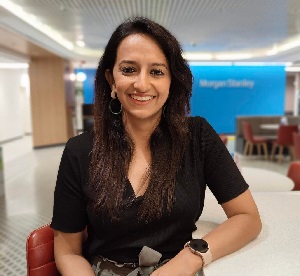Navigating gender inclusivity in Asia’s corporate landscape
- HRM Asia Newsroom

Diversity, equity and inclusivity (DE&I) teams, once seen as new and progressive, are now ubiquitous in the workplace. It is not enough for organisations to demonstrate commitment around specific events and moments in time such as Pride months and International Women’s Day. Employees, and consumers, today are looking for a tangible, continuous and deep commitment to DE&I. From a gender point of view, this may mean providing opportunities for career advancement and having flexibility blended into the culture through various people policies, for example.
Many organisations, including Agoda where I lead efforts on DE&I, have DE&I budgets which are expanding year on year, but there is significant room for us to grow and progress in our journey. To gain insight into the ever-evolving needs of the workforce, we recently conducted a study in partnership with YouGov canvassing 12,000 external respondents across 10 markets in the region. The study highlighted that despite region-wide, industry-wide investment in DE&I, only 28% of respondents think the working environment for women has improved significantly over the past five years.
Meanwhile, 65% of respondents believe there has been marginal to no improvement. This is an indicator of the fact that we need to do more on the ground to change these perceptions and realities.
To shift the dial, we need to make sure our investment in DE&I is channelled into initiatives that enable, encourage, and empower diverse leadership teams through visible pathways and opportunities for women and non-binary employees to progress.
In Asia, DE&I is further complicated by the very diverse cultural expectations and nuances of each market. The results of our Women in the Workplace: Asia survey show that while gender inclusivity is important for women across all 10 markets (Japan, South Korea, Taiwan, Singapore, Thailand, the Philippines, India, Vietnam, Indonesia, and Malaysia), there are variances in expectations between for example the Philippines and Thailand compared to respondents from Japan or South Korea.
What are the top priorities for a gender-inclusive workplace?
When we conducted this study, in addition to the perspectives of different genders, we also wanted to understand how different generations view gender inclusivity in the workplace. The findings are important for organisations to consider when they are creating a plan that will help attract and retain the best talent.
Agoda’s Women in the Workplace: Asia survey found that transparent visibility of opportunities (42%), workplace flexibility (39%), and access to opportunities (38%) are the three most critical factors for empowering a more gender-inclusive workplace, outranking pay parity and parental support.

“We know that representation matters so it is imperative to have a diverse representation of genders at a leadership and decision-making level.” – Aanchal Gupta, Senior Manager, Diversity, Equity and Inclusion, Agoda
For respondents in the 18–24-year-old age bracket in particular, it is about balanced representation and fairness in opportunity. They want to see women in leadership, and they want to see clear paths for women to progress into leadership roles, along with visible and transparent opportunities and training.
Just as they are attracted to organisations that exhibit a strong commitment to DE&I, those ready to enter the workplace are also more likely to leave an organisation that they perceive to be discriminatory. In fact, the survey found 18-24-year-olds were more likely to have quit or known someone who has quit because of gender discrimination, with 35% of those aged 18-24 saying they know someone who has done so, compared to only 12% of those aged 55 and above.
At Agoda, one of our core values is “Do things the right way” which brings a strong focus on anti-discrimination and harassment in our culture. Keeping this in mind, we have recently launched an initiative to ensure diverse candidates when it comes to hiring for senior roles. Open roles are advertised internally providing all employees transparent access to available opportunities.
Glass ceiling exists but shows signs of shifting
It is not surprising that nearly half of the respondents (46%) believe a glass ceiling still hampers the progress of women in the workplace. We know that representation matters so it is imperative to have a diverse representation of genders at a leadership and decision-making level.
In the absence of a level playing field, underrepresented and marginalised groups require targeted leadership development programmes to reduce barriers to career progression. Women are underrepresented in the tech sector with figures from 2022 suggesting that only 30% of the overall tech employees are women.
At Agoda, women make up 51% of our workforce but it is not evenly distributed across departments. One of our learning and development programmes helps to empower women employees who are at the cusp of senior leadership, helping us engage, retain, and advance our diverse talent pool into leadership roles.
Communities and a sense of belonging
The Women in the Workplace: Asia study also revealed that priorities vary across genders, with non-binary respondents placing a stronger focus on social inclusion, professional inclusion, and balanced representation at a senior leadership level.
READ MORE: Leveraging gender diversity in the workplace for business success
Our Employee Resource Groups, like Women@Agoda, Pride and Thrive at Agoda, play a crucial role in providing a safe space for employees with shared identities, offering opportunities for connection, community, and advocacy, in addition to fostering allyship to help everyone become part of the solution.
Listening, continual learning should be the basis of any DE&I approach
We know that in a fast-moving industry like ours, success hinges on our capacity to attract and retain top talent.
While at Agoda we are proud that our parent company, Booking Holdings, has been named one of Forbes top organisations for women this year, we recognise that we have a responsibility as well as a business imperative to continue to improve our practices.
As the D for diversity in DE&I suggests, there is no one-size-fits-all approach, especially when working across diverse markets and appealing to generations with evolving needs.
It is a continual learning process for the people team and our business leaders, and we will never stop trying to improve, whether that is through e-learning and classroom sessions to help employees uncover unconscious bias to leadership programmes that foster an environment where all Agodans feel safe and valued. Commitment to DE&I means honouring all experiences, seeking out and valuing all voices and leading with empathy.
About the author: Aanchal Gupta is Senior Manager, Diversity, Equity and Inclusion at Agoda.






